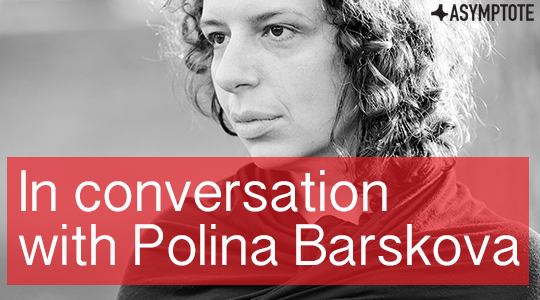Today, we feature editor-in-chief Lee Yew Leong in conversation with Polina Barskova, scholar of the devastating Siege of Leningrad, in which as many as one million perished from famine. Working with a team of historians and translators on “miraculous” archival material, Barskova produced Written in the Dark, an important human testament of its time. After reading this interview, be sure to check out a selection of works from the anthology which we arranged with The Guardian to showcase on a recent Translation Tuesday.
Your project presents a literary phenomenon that has been “unknown even to Russian readers for 70 years,” according to the introduction accompanying the anthology. Can you give our (mostly non-Russian) readers a bit of background into the dire circumstances that resulted in the writing gathered here? Why was it unknown for 70 years, even in its native Russia?
The Siege of Leningrad (1941-1944) was a complex disaster indeed, resulting in around one million deaths from famine. But yet another dire consequence was Soviet power doing everything possible to conceal the humanitarian catastrophe that happened in the city. For decades, only the Soviet version of the heroic fight could be published; all other voices and opinions were suppressed. The poems collected here present the human suffering, not the official version of heroism.
Your work as a scholar on the Siege undoubtedly helped you unearth these important poems, whose survival has been called a “miracle.” Can you shed some light on the discovery, and the process of presenting an English anthology?
This anthology is a collective effort: many scholars worked to unearth and preserve and interpret these texts. My job was mainly to put them together, to organize them into one coherent poetic and historical statement. It is mainly due to the families and disciples of these poets that these texts have survived. In every case, their survival is a miracle.
And with this feeling of awe I’ve been talking about the anthology both in the West and in Russia, and curiously very different audiences receive the book with equal enthusiasm.
Many translators worked together on a lot of these pieces. What was the editing process like?
It was a hugely complicated process involving lots of ardent discussions. In the end, the editorial intent was to present the versions that would reflect the radically innovative tone of the Siege surrealist writing in all its subtlety and complexity. This was a challenging process but I hope one that reflects the richness, the originality and the strangeness of all the poets’ voices.
Which instinct did you abide by when curating this anthology? That of a historian or that of a literary editor?
I guess both. For me, my main desire was to find a way, in collaboration with many scholars and translators, to present a whole new phenomenon of the (Soviet) literature and to demonstrate how the tragedy of the Siege of Leningrad produced poetic voices of staggering quality, poignancy, and freedom. Yet another genocide of the 20th century can now be explored in its authentic representation. But I constantly think also about the sheer number of voices and texts that have disappeared; of how much was lost. It is a dark irony of this project that, in revealing voices that survived, we have also created a monument to those who have disappeared into the dark.
Discuss the poet whose work impacted you the most, or who was able to reveal the most of his horrifying condition.
I must say that all five poets in this anthology (Gor, Rudakov, Zal’tsman, Sterligov, and Maksimov) present unique poetic dictions. Each one of them is incredibly interesting—and different from one another! Maximov conveys traumatic madness through his strange infantile diction; Rudakov pretends to be a learned scholar of his demise; Gor breaks down language altogether; Zal’tsman accuses God; while Sterligov writes it all as an artist—his suffering is primarily visual… They all inherited some of the traditions of the “hidden” Leningrad Avant-garde of the 1930s, many of whose leaders perished in the purges.
I hope that the reader will not only come out of reading this project depressed or shocked but also amazed by the fact that poetics of such radical subjective expression could have existed within both the Soviet regime and the situation of its ideology. Finally, for me, this anthology presents a great lesson of humanity.
Read a selection of Written in the Dark here and find out more about this brand-new anthology here.

